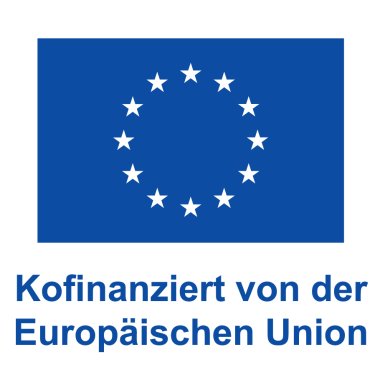Social-media crash course
General Information
This free social-media crash course is mentioned for young people at the age of 12-18 years.
The "6 digi_tours of Europe" social-media crash course is designed to enhance students' social-media production skills, marketing theory understanding, and cultural awareness. As teachers, your role is crucial in guiding students through this course effectively. Below are the instructions for conducting the course, detailed strucutre is given by the instruction for teachers. The course is designed for regular teaching in a classroom or online.
Instructions for teachers
The "social-media crash course" consists of six presentations, each focusing on a specific aspect of social media marketing and digital communication.
Course structure:
Class 1 – Social Media:
- This presentation serves as an introduction to social media platforms, their significance, and their impact on modern communication and marketing.
- Participants will learn about the basics of different social media platforms, their features, and user demographics.
- Key concepts and terminology related to social media will be covered.
Class 2 – Communication Strategy and Social Media Tools:
- In this presentation, participants will delve into creating effective communication strategies for social media.
- They will explore various tools and resources available for social media management and analytics.
- Discussions on targeting specific audiences and measuring campaign success will take place.
Class 3 – Copy and Advertising Slogan:
- This presentation focuses on crafting compelling copy and slogans for social media marketing.
- Participants will learn how to write engaging content and slogans that resonate with their target audience.
- Techniques for effective advertising and promotion on social media will be discussed.
Class 4 – Graphic Design – Tools and Tips:
- Graphic design is a crucial aspect of social media marketing. In this presentation, participants will discover essential design tools and tips.
- They will explore methods to create eye-catching visuals and graphics for their social media campaigns.
- Discussions on branding and design principles will be included.
Class 5 – Online Ads:
- This presentation is dedicated to online advertising on social media platforms.
- Participants will learn how to create and manage online ad campaigns, including budgeting and targeting.
- Key metrics for assessing the success of online ad campaigns will be covered.
Class 6 – Other Digital Marketing Actions and Data Analytics:
- In the final presentation, participants will explore additional digital marketing actions beyond social media, such as email marketing and SEO.
- Data analytics and measurement of campaign effectiveness will be discussed, emphasizing the importance of data-driven decisions.
Additional Information:
- Remind students that the Social Media Crash Course is a part of the "6 digi_tours of Europe" project, funded by the Erasmus+ program.
- Encourage active participation and discussion among students throughout the course.
- Regularly check their progress and provide guidance as needed.
- Share feedback and insights with the project coordinators to contribute to the improvement of future courses.
Conclusion:
The "6 digi_tours of Europe" social-media crash course offers a unique opportunity for students to develop valuable video production skills and cultural awareness. By following these instructions and actively engaging with the tasks, students will gain a deeper understanding of film theory and enhance their digital literacy.
Co-Founded by EU-Program ERASMUS+
The project "6 digi_tours of EUrope" belongs to the program part "Erasmus+: cooperation partnerships" and is funded by the programm KA220.

General objective
The general objective of the Programme is to support, through lifelong learning, the educational, professional and personal development of people in education, training, youth and sport, in Europe and beyond, thereby contributing to sustainable growth, quality jobs and social cohesion, to driving innovation, and to strengthening European identity and active citizenship. As such, the Programme shall be a key instrument for building a European Education Area, supporting the implementation of the European strategic cooperation in the field of education and training, with its underlying sectoral agendas. In addition, it is key in advancing youth policy cooperation under the European Union Youth Strategy 2019-2027 and developing the European dimension in sport.
Specific objectives
The Programme has the following specific objectives:
- promote learning mobility of individuals and groups, as well as cooperation, quality, inclusion and equity, excellence, creativity and innovation at the level of organisations and policies in the field of education and training;
- promote non-formal and informal learning mobility and active participation among young people, as well as cooperation, quality, inclusion, creativity and innovation at the level of organisations and policies in the field of youth;
- promote learning mobility of sport staff, as well as cooperation, quality, inclusion, creativity and innovation at the level of sport organisations and sport policies.
More information: German NA: Schulbildung - Erasmus+ (erasmusplus.de)
Project data
Project number: KA220-HE-21-24-3446KA220-HE-21-24-3446
Project duration: IV/2021 to III/2023
Funding volume: 274.650 €
Disclaimer
Funded by the European Union. Views and opinions expressed are however those of the author(s) only and do not necessarily reflect those of the European Union or the European Education and Culture Executive Agency (EACEA). Neither the European Union nor EACEA can be held responsible for them.
